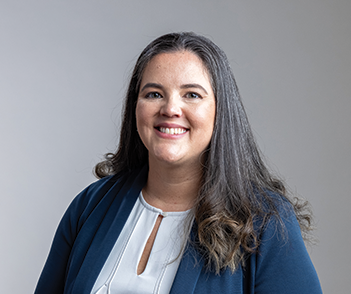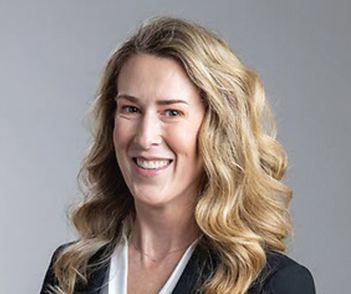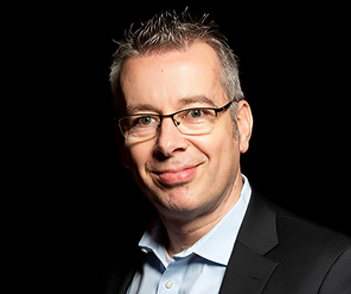The new Global Medical Information and Education Office (GMIE) is leveraging technology and worldwide expertise to drive best practices and deliver practical, flexible, and innovative programs. These include the Advanced Renal Education Program (AREP) and the Global Medical Education Webinar Series. Both of these platforms are expanding their offerings and support regional customization and greater virtual participation. The GMIE team is also creating a portfolio of interactive tools, prescription calculators, and games that simulate a clinical environment. All these developments are driving a significant increase in participation from across Fresenius Medical Care and from the larger nephrology community.
Fresenius Medical Care’s ongoing focus on the importance of medical education for its worldwide community led to the creation of the GMIE Office at the end of 2020. This new group brings together the worldwide Medical Information and Education teams into one coordinated unit to drive best practices, deliver consistent communication, unite platforms, and eliminate redundancies.
The GMIE teams collaborate internally and externally to develop educational materials and provide medical and clinical expertise in support of the company’s product portfolio, associated therapeutic areas, and research and development projects. To reach across the nephrology and critical care communities, specific educational programs have been developed for the spectrum of healthcare providers: physicians, nurses, dietitians, social workers, technicians, and others. This is done through two distinct platforms: the Advanced Renal Education Program (AREP) and the Global Medical Education Webinar Series.
ADVANCED RENAL EDUCATION PROGRAM
Since its inception in 1996, AREP has evolved into a key educational platform for healthcare providers. It is endorsed by the International Society for Peritoneal Dialysis and the International Society for Hemodialysis and is accredited to provide continuing education credits. Historically, home dialysis in the United States has been AREP’s major focus. Now, it has expanded offerings to include hemodialysis, on-line hemodiafiltration, and critical care, including heart and lung therapies (Figure 1).
The AREP platform disseminates education through two main avenues: regional websites and live events, both in-person and virtually. The three AREP websites have eLearning courses, short videos, educational games, literature search tools, and home therapy prescription tools. In 2020, there were nearly 680,000 pageviews for review articles, and over 71,000 eLearning courses were taken, which represents a tenfold increase in participation in the last decade (Figure 1).
FIGURE 1 | Advanced Renal Education Program websites
Building on the traditional didactic presentations and eLearning courses offered by the AREP platform, the GMIE teams have been developing innovative and interactive educational tools in recent years that are designed for participant engagement and can be easily translated to the clinical environment for immediate application. These include case-based online educational games, such as the Striving to Obliterate Peritonitis (STOP) Task Force where participants learn and apply the International Society for Peritoneal Dialysis guidelines on prevention and treatment of peritonitis; short, animated videos to introduce topics; educational simulators that allow users to practice their skills in a virtual environment; and home dialysis prescription calculators.
The North America AREP website hosts two home dialysis prescription calculators, one for peritoneal dialysis (PD) and one for home hemodialysis (HDD) (Figure 2). Both tools allow users to predict prescription outcomes based on demographic and clinical data, with evidence-based guidance to support what may be most appropriate for an individual patient. The importance of fluid removal is reinforced with suggestions for ultrafiltration optimization highlighted for both modalities. As educational tools, these calculators are novel in that prescribers can change one variable at a time and easily see how the change affects the predicted outcome. As a testament to the need for, and simplicity of, the tools, nearly 1.4 million prescriptions have been modeled since the launch of the PD calculator. Interestingly, most PD prescriptions modeled in the calculator have an unknown transport type, suggesting that the tool is being utilized for customizing initial PD prescriptions, which was one of the original educational goals when the calculator was launched: to encourage the use of patient-specific prescriptions from the beginning. In January 2021, the HHD calculator was launched and is quickly gaining users.
FIGURE 2 | PD and HHD calculators
In 2020, AREP live events quickly adapted to the virtual world and changed from live in-person symposia to live online webinars. To foster virtual engagement with participants, programs were adjusted from days-long traditional lecture programs to shorter interactive roundtable discussions with expert nephrologists, nurses, and individuals with end-stage kidney disease receiving dialysis. In 2020, there were 21 live events that drew over 6,200 participants from across dialysis providers, 14 percent of which were prescribers (Figure 3).
FIGURE 3 | AREP live event provider affiliation
GLOBAL MEDICAL EDUCATION WEBINAR SERIES
The webinar series in the United States is a spin-off of the success@homeTM Clinical Resource Line, which provides nurse-to-nurse phone support on PD therapy and PD-related products; in 2020 nearly 1,000 questions were answered. In addition to the clinical phone support, the resource line has been hosting nurse-focused, live educational webinars since 2008. Webinar attendance in the last five years has grown from around 1,900 participants in 2016 to over 11,000 in 2020 (Figure 4). The growth in participation rate can be attributed to multiple factors: CE credit offering for nurses at the end of 2018; expanded promotion to DaVita Dialysis healthcare providers and delivering programs in Spanish in 2019; and communication campaigns, faculty expansion, and the COVID-19 pandemic in 2020. Like AREP, the webinar series was historically focused on home therapies, specifically PD, with product and disease state education. In recent years, webinars have expanded to include topics on HHD, anemia, hyperphosphatemia, and fluid management. Topics across the kidney disease spectrum are all well attended (Figure 4).
FIGURE 4 | Medical education webinar growth
LOOKING FORWARD
The GMIE teams have already implemented ways to further extend their educational reach. For AREP, live programs are offering continuing medical education credits, increasing physician participation. Education will expand to more comprehensively address topics related to chronic kidney disease, home dialysis, in-center hemodialysis, on-line hemodiafiltration, critical care nephrology, and extracorporeal membrane oxygenation (ECMO) therapies.
In March 2021, the Global Medical Education Webinar Series was expanded worldwide, with programs also being hosted by the Europe, Middle East, and Africa (EMEA) and Asia Pacific Medical Information teams. Sharing content, speakers, and webinar platforms, the GMIE collaboration includes shared hosting and promotion of the programs between North America and EMEA, and between EMEA and Asia Pacific. In the first half of 2021, nearly 12,000 participates attended the global programs.
Within the new GMIE group, a new matrix-based organizational structure includes regional leads in North America, EMEA, and Asia Pacific, and focused therapy workgroups for on-line hemodiafiltration, home dialysis, and critical care. This structure will further facilitate cross-regional and cross-topic collaboration as new educational content is developed; once developed, these educational programs can be adapted and/or translated to each region’s specific needs.
In the United States, the GMIE group includes a group of highly specialized, field-based medical support specialists (MSSs).
The MSS team was especially critical in supporting PD product training throughout the COVID-19 pandemic. Team members quickly adapted to the virtual environment and are all certified in Facilitating Virtual Training by the Association for Talent Development. At the beginning of the pandemic, the MSSs quickly developed and deployed virtual PD product training to over 200 participants across 15 hospitals in New York City so facilities could provide acute PD to patients with COVID-19 when resources for acute hemodialysis therapies were limited. In 2020, the MSS teams provided 11,100 hours of training to 11,712 nurses across the country. In 2021, they are already on track to exceed these numbers.
Meet The Experts
References
- United States Renal Data System. 2018 annual data report. https://www.usrds.org/2018/view/Default.aspx; reference tables at https://www.usrds.org/reference.aspx.


